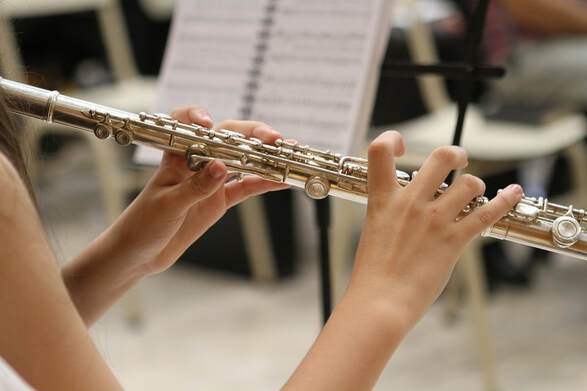How to Prepare for College Auditions
by Alexandra Doyle
© JustViolin.org
|
|
So, you’ve decided to be a music major in college– congratulations! It’s a tough road, but it’s a fun and rewarding one, too. As a current doctoral student at a major conservatory, I’ve been through a few of those auditions myself. Here are my top tips to help you prepare for a successful audition season.
Take Private Lessons
This might seem obvious, but it’s so incredibly important to take regular lessons– weekly, if possible– from a professional on your instrument. Having somebody to guide you through the audition process personally can make a huge difference in your success, and there’s nothing worse than showing up to a college audition and learning that you’ve missed out on some essential knowledge about your instrument. If you live in an area that doesn’t have many music teachers, lots of professionals offer online lessons via Skype and other video platforms. Skype lessons aren’t as good as the real thing, but it’s a lot better than no lessons at all.
The other way this tip applies is that you should take a private lesson from each professor you’re applying to study with. If you can’t do this at all the places you’re applying, at least do it at your top choices. Auditions are often only fifteen minutes to half an hour, and a full hour gives the professor much more time to get to know you. Plus, you’ll be more comfortable during your audition if you’ve met the professor beforehand.
The other way this tip applies is that you should take a private lesson from each professor you’re applying to study with. If you can’t do this at all the places you’re applying, at least do it at your top choices. Auditions are often only fifteen minutes to half an hour, and a full hour gives the professor much more time to get to know you. Plus, you’ll be more comfortable during your audition if you’ve met the professor beforehand.
Have Your Fundamentals Ready to Support You
Don’t just learn the audition materials and call it a day. Make sure your major and minor scales, thirds, and arpeggios are under your fingers and ready to go, as well as any standard fundamental exercises for your instrument. Your audition committee might ask you to play some scales, but even if they don’t, practicing these regularly helps ensure that you’re in top playing condition.
Don’t Put All of Your Eggs in One Julliard – I Mean, Basket
Do not just apply to extremely competitive programs and hope for the best! Apply to a wide range of institutions– your dream school, plus a few places you’d like to go, and a few safety schools. We all want to go to Eastman, but that acceptance rate is truly punishing for most applicants. The school where you do your undergraduate studies isn’t as important as where you go to graduate school, if you’re looking to become a performer or a teacher in higher education. Also, remember that the more the school wants you to go there, the more scholarship money they’ll offer you. If you’re head and shoulders above the other applicants, you can get a top-notch scholarship offer. I went to a state school for my undergraduate studies on a full scholarship, and that’s part of the reason that I’m going to finish my doctorate without any student loans. Cha-ching!
Remember That You’re Interviewing the Faculty Almost As Much As They’re Interviewing You
Your audition isn’t just an opportunity for faculty to decide if they want to invite you to their school– it’s your chance to decide if you should accept their invitation. Pay close attention to how a faculty member makes you feel. Do you think you could learn under them? Did their remarks make you want to work harder? Or did they make you feel lousy? As a music major, the most important person in your undergraduate studies will be your applied study professor (the person who teaches your private lessons). Finding somebody who clicks with you will make your undergraduate years more enjoyable and more valuable.

